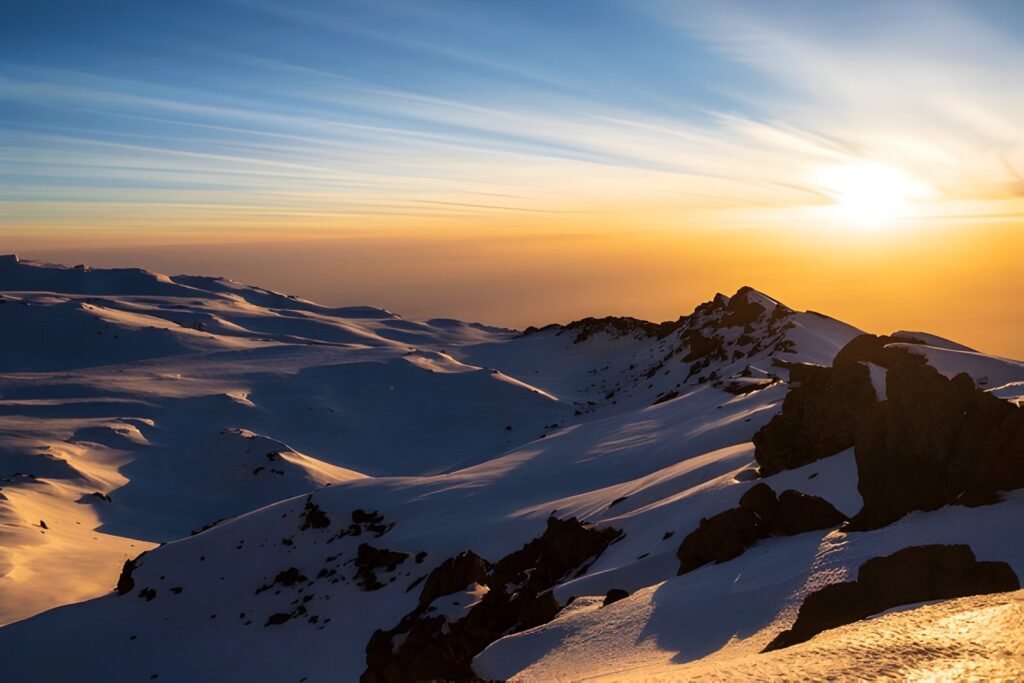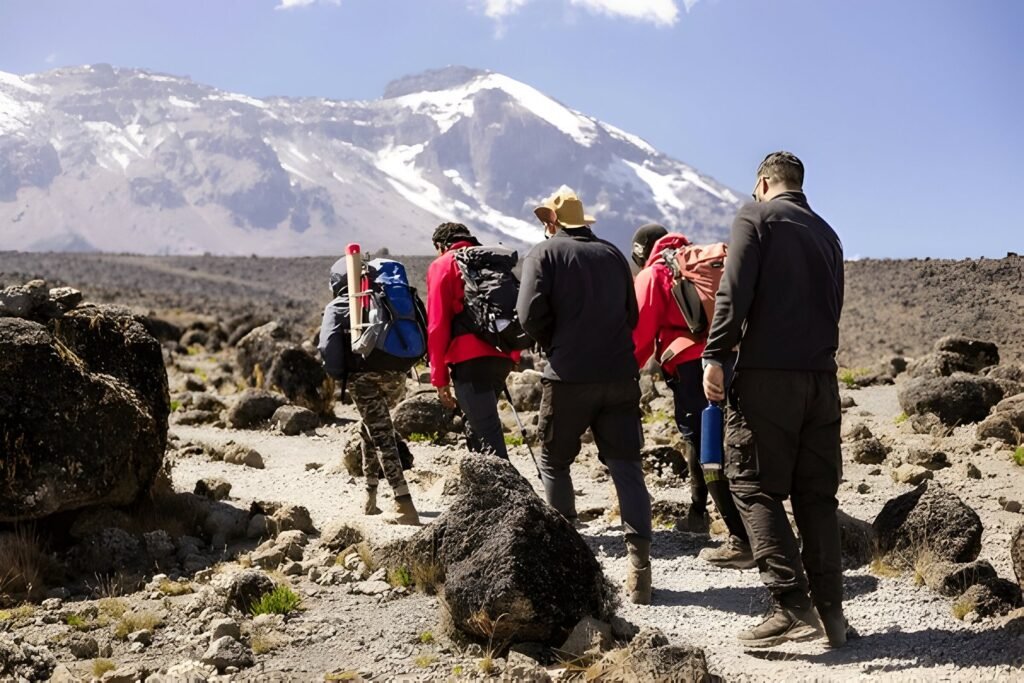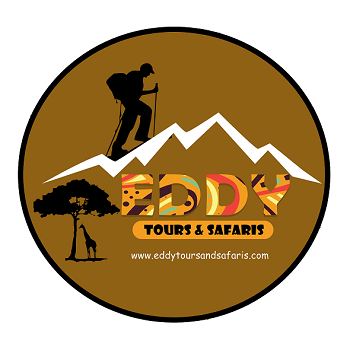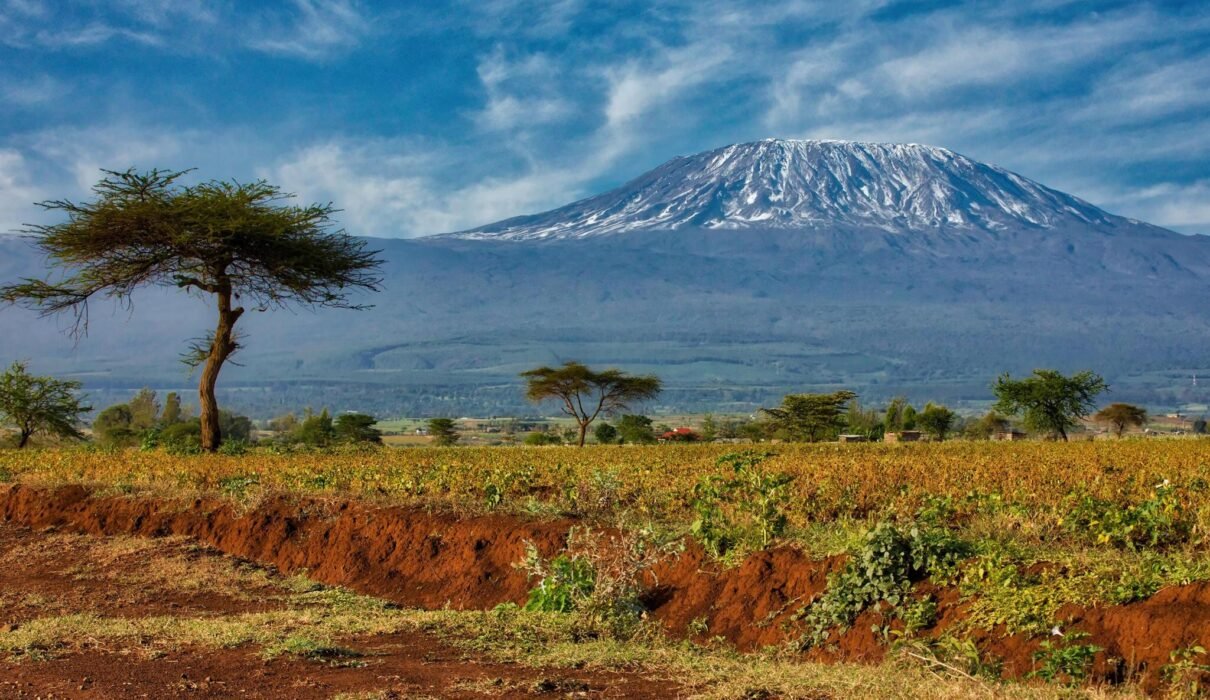Kilimanjaro Climbing FAQs 2025 : Climbing Mount Kilimanjaro, Africa’s highest peak, is a challenging yet rewarding experience. If you’re planning to take on this adventure, you probably have plenty of questions about what to expect, how to prepare, and what it will cost. In this guide, we’ll answer the most common Kilimanjaro climbing FAQs to help you get ready for your journey.

Kilimanjaro Climbing FAQs 2025 : What Are the Best Routes to Climb Kilimanjaro?
Mount Kilimanjaro offers several routes that vary in difficulty, scenery, and duration. Each route has its own benefits depending on your fitness level and how much time you have.
- Marangu Route: Known as the “Coca-Cola” route, this is the only path that uses hut accommodations instead of tents. It’s one of the easiest routes but offers less time for acclimatization.
- Machame Route: Known as the “Whiskey” route, it’s one of the most popular routes due to its scenic views. It takes 6-7 days and offers good acclimatization opportunities.
- Lemosho Route: Considered one of the most beautiful routes, it takes 7-8 days and has a high success rate due to longer acclimatization.
- Rongai Route: Approaching the mountain from the north, this is a less crowded option with gradual slopes. It’s great for those seeking a quieter climb.
For expert guidance on choosing the best route, visit Kilimanjaro Climb Specialist, where you can find detailed information on all routes.
Read more about Kilimanjaro climbing routes.
Kilimanjaro Climbing FAQs 2025 : How Long Does It Take to Climb Kilimanjaro?
The duration of a Kilimanjaro climb depends on the route you choose. Most routes take between 5 to 9 days. The longer you spend on the mountain, the better your body will acclimatize to the altitude, increasing your chances of reaching the summit.
The Machame Route typically takes 6-7 days, while the Lemosho Route can take 7-8 days. If you’re looking for a faster climb, the Marangu Route is often completed in 5-6 days, but it’s important to consider the risk of altitude sickness on shorter itineraries.
Find out more about how long it takes to climb Kilimanjaro.
Kilimanjaro Climbing FAQs 2025 : Do I Need to Be an Experienced Climber?
No technical climbing skills are required to summit Kilimanjaro, making it a trek suitable for beginner hikers. However, the climb is physically demanding due to the altitude and long trekking days. It’s essential to have a good fitness level and prepare adequately for the hike.
Training should focus on cardiovascular fitness, leg strength, and endurance. Hiking, running, cycling, and stair climbing are great ways to prepare. It’s also important to practice hiking with a backpack to simulate the conditions of carrying gear during the climb.
Learn more about training for Kilimanjaro.
Kilimanjaro Climbing FAQs 2025 : What Is the Success Rate of Reaching the Summit?
The success rate of reaching the summit varies depending on the route and the number of days spent on the mountain. Routes with longer durations, such as the Lemosho and Machame routes, have higher success rates due to better acclimatization. The overall summit success rate ranges from 60% to 85%.
The key to increasing your chances of reaching Uhuru Peak is proper acclimatization, pacing yourself during the trek, and listening to your guide’s advice. Remember, altitude sickness is the main reason climbers don’t reach the top.
Explore more about Kilimanjaro success rates.
Kilimanjaro Climbing FAQs 2025 : What Should I Pack for the Climb?
Packing the right gear is essential for a successful Kilimanjaro climb. You’ll need a combination of clothing layers, gear for varying temperatures, and basic camping equipment.
Essential Packing List:
- Warm base layers (thermals)
- Insulating jacket (down or synthetic)
- Waterproof jacket and pants
- Hiking boots (well broken-in)
- Warm gloves and hat
- Sunglasses (UV protection)
- Headlamp with extra batteries
- Water bottles or hydration system
Don’t forget to bring snacks for energy, such as nuts, dried fruit, and energy bars. Some tour operators provide basic camping gear, but it’s a good idea to check in advance to avoid overpacking.
For detailed packing recommendations, visit Kilimanjaro Climb Specialist.
Read more about packing for Kilimanjaro.
Kilimanjaro Climbing FAQs 2025 : What Is Altitude Sickness and How Can I Prevent It?
Altitude sickness occurs when your body struggles to adjust to lower oxygen levels at high altitudes. Symptoms include headaches, nausea, and fatigue. It can affect climbers at elevations above 2,500 meters (8,200 feet), and Kilimanjaro’s summit stands at 5,895 meters (19,341 feet).
Tips to Prevent Altitude Sickness:
- Acclimatize slowly: Choose a route with more days to allow your body to adjust.
- Stay hydrated: Drink plenty of water throughout the day.
- Pace yourself: Walk slowly, especially in the early days.
- Eat well: High-calorie meals will help keep your energy up.
- Take altitude sickness medication (such as Diamox) after consulting your doctor.
If symptoms become severe, it’s important to descend immediately to lower altitudes.
Learn more about altitude sickness prevention.
Kilimanjaro Climbing FAQs 2025 : How Much Does It Cost to Climb Kilimanjaro?
The cost of climbing Kilimanjaro can vary depending on the route, duration, and level of service. On average, a budget climb can cost around $1,500 to $2,500, while a mid-range to luxury climb can range from $3,000 to $5,000.
Costs typically cover park fees, guide and porter services, accommodation, meals, and equipment rentals. It’s important to book with a reputable operator to ensure safety and quality service.
For affordable and customized climb options, visit Eddy Tours & Safaris.
Check out more about Kilimanjaro climbing costs.
Kilimanjaro Climbing FAQs 2025 : What Is the Role of Guides and Porters?
Guides and porters are essential to the Kilimanjaro experience. Guides will lead the way, monitor your health, and ensure your safety throughout the trek. Porters carry most of the heavy gear, including tents, food, and cooking equipment, allowing you to focus on the climb with a lighter daypack.
Porters are typically local Tanzanians, and it’s important to ensure they are treated ethically. Look for operators that follow fair practices, such as those accredited by the Kilimanjaro Porters Assistance Project (KPAP), which ensures porters receive fair wages, proper clothing, and adequate food.
Learn more about the Kilimanjaro Porters Assistance Project.
Kilimanjaro Climbing FAQs 2025 : Do I Need Travel Insurance?
Yes, travel insurance is essential when climbing Kilimanjaro. Make sure your policy covers high-altitude trekking (up to 6,000 meters), medical evacuation, and trip cancellation. Many insurance providers offer specific packages for adventure activities, so it’s important to choose a plan that fits your needs.
While medical emergencies are rare, it’s crucial to be prepared for any eventuality, especially in remote areas like Mount Kilimanjaro.
Get more information about travel insurance for Kilimanjaro.
Kilimanjaro Climbing FAQs 2025 : How Do I Book My Kilimanjaro Climb?
Booking your Kilimanjaro climb through a reliable operator is key to having a safe and enjoyable experience. Research different operators, compare costs, and look for companies that prioritize ethical practices, experienced guides, and client safety.
For professional, well-organized Kilimanjaro climbs, check out Kilimanjaro Climb Specialist or Eddy Tours & Safaris. Both offer a range of packages, from budget options to luxury experiences, with a focus on safety and customer satisfaction.

Conclusion: Kilimanjaro Climbing FAQs 2025
Climbing Mount Kilimanjaro is a physically demanding yet achievable goal for many adventurers. With proper preparation, guidance, and the right gear, you can reach the summit and enjoy one of the most rewarding experiences on earth. Whether you’re a seasoned hiker or new to trekking, the answers to these frequently asked questions will help you prepare for your journey with confidence.
For more information or to book your climb, visit Kilimanjaro Climb Specialist or Eddy Tours & Safaris today.

